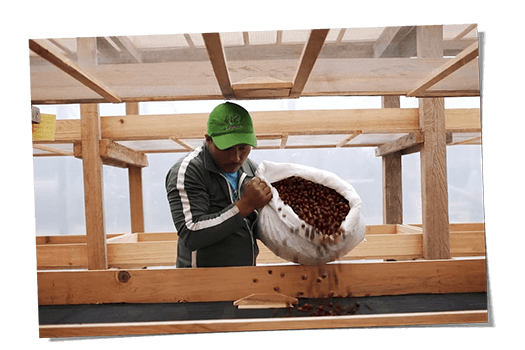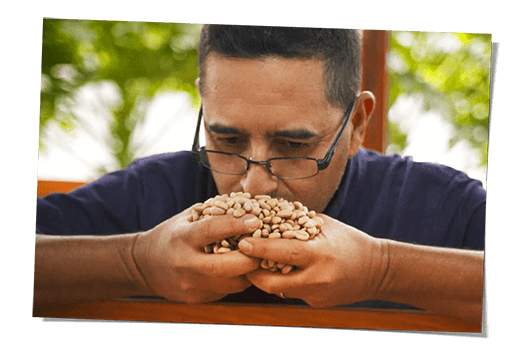Organic is much more than just a food trend for Café Intención. For us, organic is a philosophy—a sign of respect for nature and the resources it provides us. Even better, organic products are not only healthy but also taste pure and authentic.
For many, choosing organic products is a daily habit. But transforming a company into an organic-certified operation doesn’t happen overnight. Those who want to practice certified organic farming must meet strict requirements. For our coffee producers, this means scrutinizing every single step of production and always acting as sustainably as possible.
It all starts with cultivation: avoiding genetic modification and chemical fertilizers is a given. Additionally, organic-certified coffee cannot come from monoculture farming. Instead, coffee trees must be grown alongside other plants such as avocados, grapefruits, or bananas.
This mixed farming method helps loosen the soil while also preventing erosion and pests. It also reduces the need for natural fertilizers. Furthermore, shade-providing trees lower evaporation, significantly reducing water consumption.
For organic coffee, machines are avoided wherever possible. This means that harvesting, cleaning, and even the fermentation process of the coffee beans are done mostly by hand. Later, during roasting, careful handling is essential to preserve the beans’ delicate aroma.

The organic label ensures transparency in ecological production.
Conscious eating, a healthy lifestyle, and responsible resource management have never been more important to consumers. For some time now, coffee from controlled organic cultivation has been in high demand—and for good reason.
The organic label summarizes a brand’s commitment to sustainability. It is a reliable quality mark that guarantees: no pesticides were used, and no valuable resources were wasted in the production of this product.
Regular inspections of coffee plantations ensure that the high organic quality standards are met. These independent audits take place once a year—every fifth inspection is even unannounced.
On one hand, the conditions at agricultural sites are reviewed. On the other, it is ensured that organic coffee remains separate from conventionally grown coffee during transportation and roasting.
Additionally, organic coffee must be processed with extreme care. Before every organic roast, the roasting equipment must undergo extensive cleaning to maintain the high-quality standards of organic coffee.
If all legal organic standards are met, the coffee receives the EU organic seal. The seal must always be displayed on the packaging along with the code of the corresponding organic control body and an indication of the product’s origin.

How much organic is in Fairtrade?
Fairtrade does not automatically mean organic. However, around three-quarters of all Fairtrade coffees are also organic-certified. At Café Intención, this ratio is even higher—except for our Clásico, all our varieties carry the EU organic seal.
Why is the share of organic coffee so high among Fairtrade-certified coffees? The Fairtrade seal alone already sets high standards for the ecological conditions of coffee production. These regulations often pave the way for an organic conversion. Additionally, Fairtrade actively supports conventional farms in transitioning to fully organic farming. Since this process can be costly and take up to three years, Fairtrade helps businesses meet complex organic certification requirements—for example, by introducing new sustainable production techniques.
With every cup of fair-trade organic coffee, you contribute to this commitment.